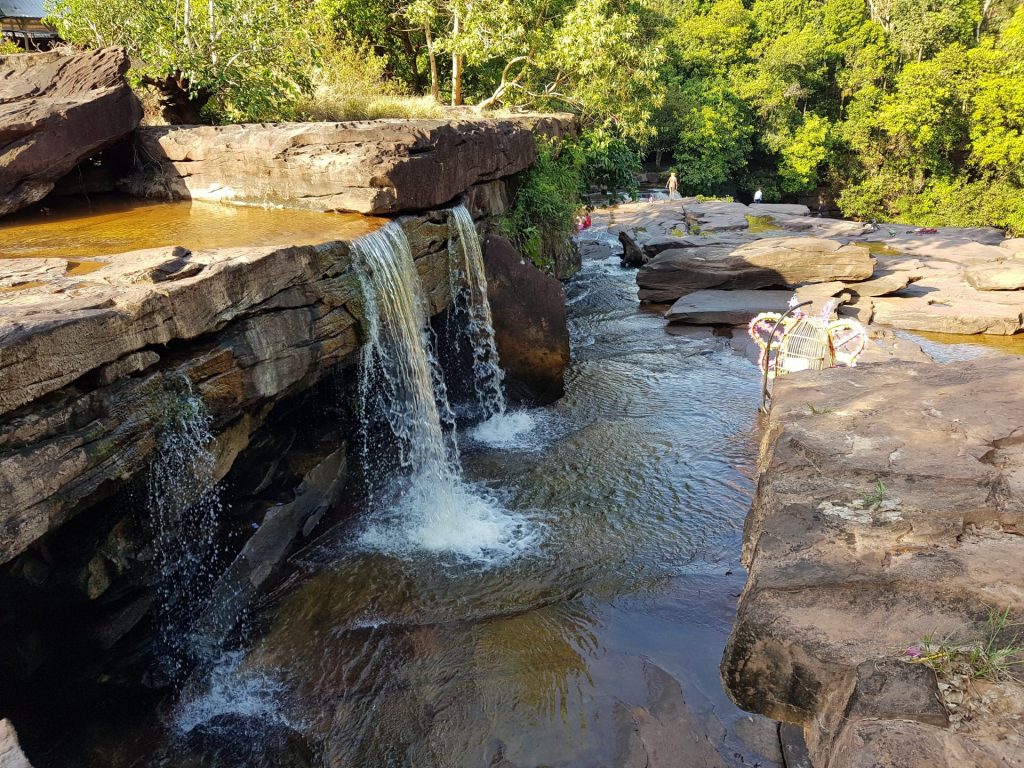heading
PROJECT: GOVERNANCE, ACCOUNTABILITY AND LEARNING FOR WATER SUSTAINABILITY (GOAL-WATERS)Cambodia
Supporting water resources management for Kbal Chhay Multiple Use Area (KCMUA), as well as sub-national participative wastewater management planning.

The project aims to support government efforts towards improving the management of watershed and wastewater in Preah Sihanouk province.
Challenge
The Kbal Chhay Multiple Use Area (KCMUA) provides several ecosystem services including fresh water, carbon sequestration, non-timber forest products, and recreation. It is the main source of freshwater supply to Preah Sihanouk provincial town providing 10 to 12 million cubic meters per year.
Since 2018, the Royal Government of Cambodia in collaboration with UNDP Cambodia has been conducting preliminary assessments of water availability and Payments for Ecosystem Services (PES) options through the management of the watershed in the KCMUA.
The assessments concluded that the main threats to ecosystem services come from forestland encroachment and limited resources for an effective management of the watershed. Moreover, Sihanoukville city has grown rapidly alongside the development of the Preah Sihanouk sea ports, a Special Economic Zone, tourism, an international airport and coal power plants.
The city experiences water shortages almost every year due to the sharp increase in demand (around 15-20% per year), mainly in the dry season. Studies show that water supply reaching the KCMUA will reach its capacity by 2023. Hence the urgent need to properly manage the watershed area and mobilize enough resources through innovative solutions to protect its ecosystem.
There is also a lack of planning in Preah Sihanouk, particularly wastewater management due to poor sewerage systems and rapid urbanization. This results in water pollution of local fresh watercourses and aquifers. The discharge of untreated effluent in water bodies has a negative impact on human health and water bodies as well as on the natural environment. Inappropriate wastewater management constitutes a threat to effective climate adaptation strategies and environmental preservation. For these reasons, it is imperative to improve wastewater management and community engagement.
Strategy
To put a management plan for the watershed into place, an assessment of the water quantity and quality for continued water provision to downstream areas needs to be conducted to generate scientific evidence and data for the management plan.
The results will be used to establish a watershed monitoring plan and to raise the awareness of the sub-national government about the need of better KCMUA and city planning in the future.
The plan will focus on watershed restoration, including ecosystem restoration and conservation as well as water resource protection.
Gender equity is one of the principles supported by the Royal Government of Cambodia, so activities will look closely at equitable access to ecosystem services for men and women as well as an equitable sharing of ecosystems and water resources restoration, conservation and protection efforts.
As the national government is working to design Payments for Ecosystem Services (PES) for the KCMUA, the assessment results will be used to pilot a PES scheme and mobilize resources for the management of the KCMUA.
To improve management of wastewater, capacity development activities and the strengthening of institutional linkages to improve understanding will be conducted. This entails the development of an adequate work plan for the formulation of guidelines to aid national and sub-national governments in climate-resilient wastewater management planning and in mobilizing community engagement, non-existent up until now.
Once these guidelines are validated by relevant stakeholders, national and sub-national officials will be trained. Efforts will be made to include at least 30% women officials.
